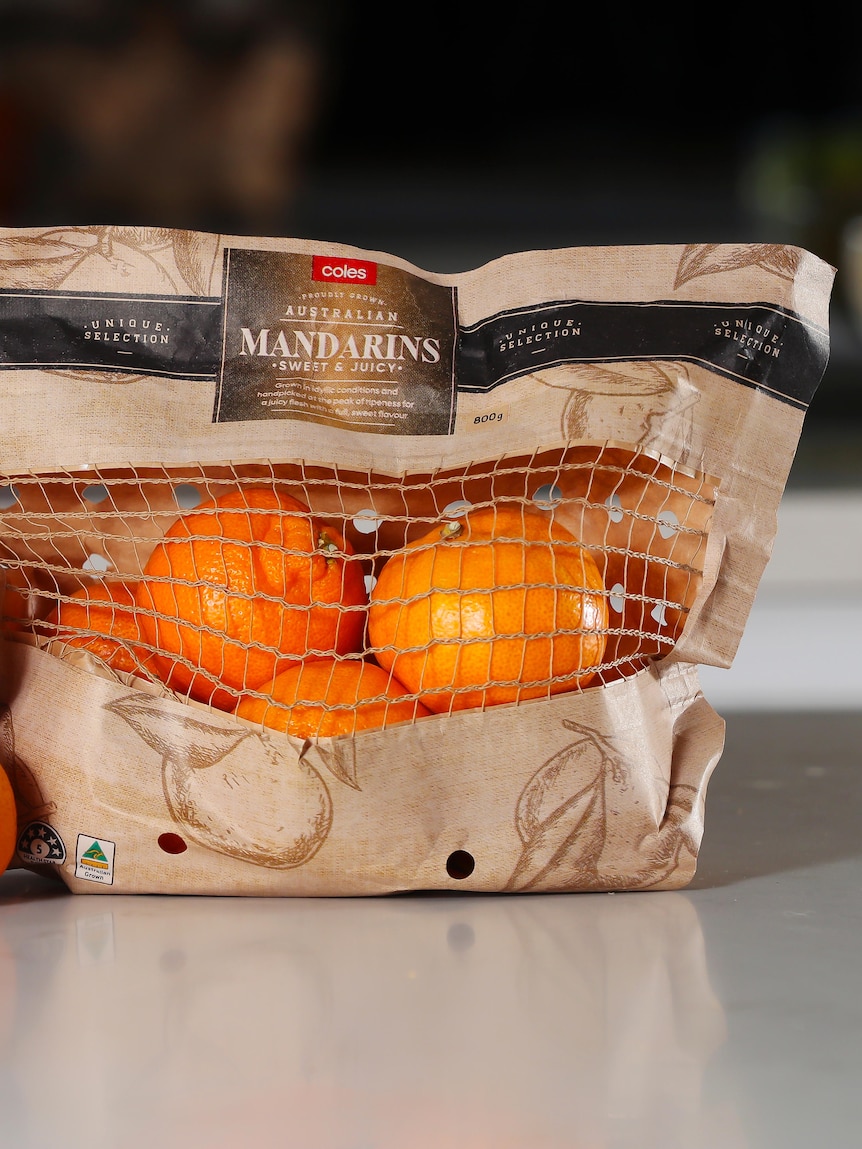With Australia’s mandarin season in full swing, plastic net bags that the fruit traditionally comes in are making way for recyclable options as major supermarkets look to follow the example of smaller retailers.
But while it has upsides for the environment, the change is not good news for everyone.
In one of the country’s largest citrus growing regions, changes to packaging are having different effects on the community.
Fabio Spiniello, grower liaison officer for Venus Citrus in South Australia’s Riverland, said the company had adopted recyclable packaging more than six years ago.
“We definitely pushed this well before the supermarkets approached us about it,” he said.
Mr Spiniello said the third-generation business still used net bags but had swapped plastic trays and sleeves for cardboard options.
The packaging industry estimated in 2021 that Australians only recycled about 16 per cent of plastic.
“It’s a little bit more costly but we’re trying to do the right thing for the environment,” he said.
A net good?
Meanwhile, a Riverland business that has produced plastic net bags for almost 50 years said demand had more than halved in the last few years.
It has meant less work for Katelyn Hartshorne, who has been an industrial sewer at disability employer Loxton Orana for seven years.
“In the start I had absolutely no idea what I was doing, but now I can easily sew like 500 in an hour,” she said.
Ms Hartshorne said while she was glad to have found enjoyable work that helps her manage her anxiety, she understood the push for change.
“It’s definitely more important to help with the environment,” she said.
Loxton Orana business service operations manager Fiona Schutz said while the business did not supply to supermarkets, orders from growers had dropped off.
“The process of manual bagging is a lot more costly so a lot of larger companies have gone away from this,” she said.
“We had one main company that we were sewing bags for and that was almost 100,000 bags per year but now I think they’re packing into boxes instead.”
Planet Ark chief executive Rebecca Gilling said avoiding unnecessary packaging was key.
“In many ways paper has a bigger land and water footprint … so just switching out plastic and replacing with paper can have unintended consequences,” she said.
“But in this situation Coles is replacing something that is not currently recyclable with something that absolutely is recyclable, which is a good move.”
Major supermarket follows suit
Australia’s second largest supermarket chain Coles is replacing plastic net bags with paper bags for its mandarins this season in a bid to reduce plastic waste.
The company said the new packaging was 100 per cent recyclable, which would avoid the use of 11,700 kilograms of plastic in one year.
Coles general manager of fresh produce Charlotte Gilbert said the chain expected to sell more than one million paper bags between April and October this year.
The news comes as Coles moved from the fifth most trusted to the ninth most distrusted brand among consumers, according to Roy Morgan survey data.
Stories from farms and country towns across Australia, delivered each Friday.




